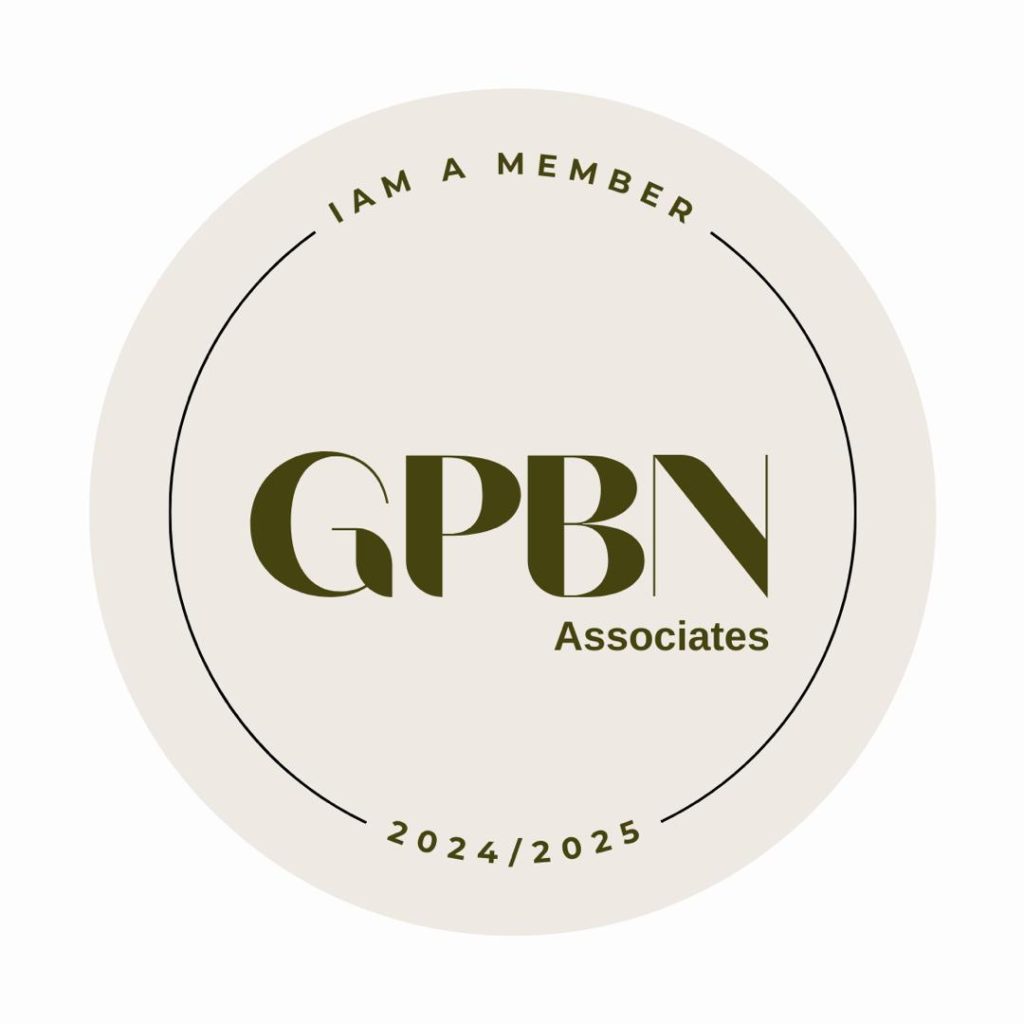
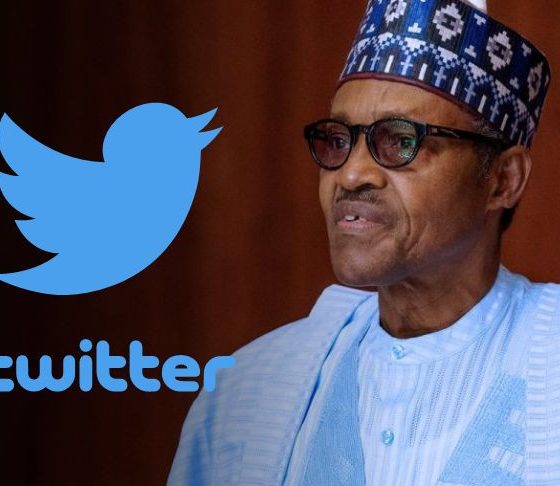
News
Twitter Is A Profit-making Entity That Can Be Proscribed—Nigerian Government Objects ECOWAS Court Ruling
The Nigerian government has filed a preliminary objection against the ruling of the ECOWAS Court of Justice on the Twitter Ban in Nigeria, stating that the ‘subject matter of the suit is not for the enforcement of any human rights recognised by the court’.
Recall that on Tuesday, the ECOWAS Community Court of Justice, in its ruling, prohibited the Nigerian government from prosecuting or arresting anyone for using Twitter in Nigeria.
The suit was filed by the SERAP and 176 other Nigerians against the Nigerian government in the ECOWAS Community Court of Justice over the indefinite suspension of Twitter in the country.
A few hours to the hearing of the suit, the Buhari administration filed and served a preliminary objection, claiming that “The subject matter of this suit is not for the enforcement of any human right recognised by this Court.”
The federal government based its argument on the motion that the suspension of Twitter does not fall under the provisions of article 8 and the African Charter on Human and Peoples’ Rights hence it is not within the jurisdiction of the court.
It also argued that Twitter is not an organisation or member state of the ECOWAS.
As a profit-making entity, the Nigerian government noted that Twitter can be dissolved in compliance with national laws citing certain provisions of the Penal Code, the Federal Provisions Act, and the Criminal Code.
However, this preliminary objection by the Nigerian government was dismissed by the ECOWAS Court.
The Federal Government’s objection, read in part: “Particulars: The subject matter of the SERAP suit relates to the indefinite suspension of Twitter in Nigeria. This is not in any way connected to any Nigerian or SERAP. Individual user’s Twitter accounts are not suspended.
“The right to freedom of expression is completely different from freedom of reach. The suspension of Twitter does not fall under the provisions of arts 8 and the African Charter on Human and Peoples’ Rights.
“Twitter as an entity is not an organisation of any member state as it is an American microblogging networking service. The suspension of Twitter in Nigeria is not a right recognised under any treaty enforceable by this Court.
“In the unlikely event that this Honourable Court agrees with SERAP that the suspension of Twitter is a fundamental right, the dissolution or liquidation of Twitter as a profit-making entity may as well open a floodgate and vest the users the rights of a non-existent right.
“Twitter is a profit-making entity that can be proscribed/dissolved in compliance with any national laws. The compulsory shutdown of an entity cannot be termed the breach of any fundamental rights by this Honourable Court.
“The suspension of Twitter in Nigeria is in compliance with the provisions of sections 420, 419 of the Penal Code [Northern Nigeria]; Federal Provisions Act, and section 58 of the Criminal Code Act. The operation of Twitter is in violation of Nigerian domestic legislation.
“Ground Two: This Court lacks the jurisdiction to determine the criminalisation of an act under Nigerian laws. The subject matter of the SERAP suit borders on the criminalisation of Twitter operations in Nigeria pursuant to the Penal Code and the Criminal Code.
“The use and operation of Twitter in Nigeria constitutes the offences of Importation of Prohibited publication under sections 420 and 421 or the offence of possession of seditious articles under section 419 of the Penal Code Federal Provisions Act.
“In any event, there is a right of action vested in the suspension of Twitter in Nigeria, the said right vests directly on Twitter and not individual users of Twitter. This is more so that individual user’s Twitter accounts were not tempered but only the operation of Twitter.
“Nigerians and SERAP have no cause of action. The suspension of Twitter in Nigeria is in compliance with the provisions of sections 420, 419 of the Penal Code and section 58 of the Criminal Code, and sections 78 and 79 of CAMA 2020.”
The Nigerian Government on June 4 suspended, indefinitely, the operations of the microblogging and social networking service in Nigeria.
Minister of Information and Culture, Lai Mohammed, announced the suspension in a statement signed by his Special Assistant Segun Adeyemi citing the “persistent use of the platform for activities that are capable of undermining Nigeria’s corporate existence”.
SERAP, shortly after the government’s suspension, tweeted, “We’re suing Nigerian authorities over their ILLEGAL indefinite suspension of Twitter in Nigeria.
“Nigerians have a right to freedom of expression and access to information including online, and we plan to fight to keep it that way.
“@NigeriaGov, we’ll see you in court.”
News
BREAKING: Court Sentences Nnamdi Kanu to Life Imprisonment
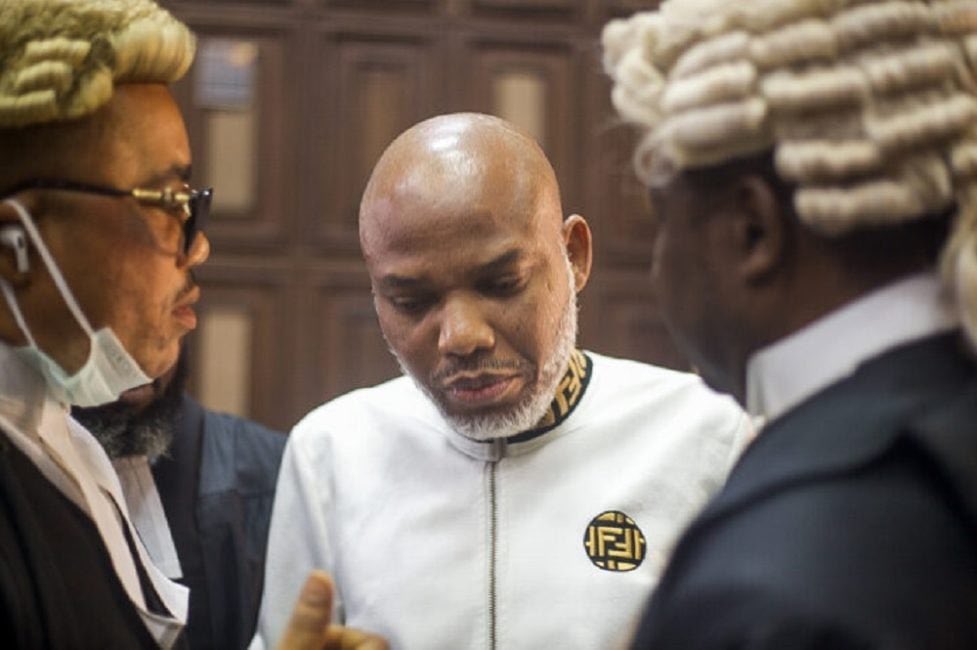
Justice James Omotosho of the Federal High Court in Abuja has sentenced Nnamdi Kanu, leader of the proscribed Indigenous People of Biafra (IPOB), to life imprisonment, marking a major climax to a decade-long trial.
The judgment, delivered on Thursday, comes four years after Kanu was arrested in Kenya under controversial circumstances and returned to Nigeria to face terrorism charges.
Kanu was convicted on all seven counts bordering on terrorism, despite pleading not guilty throughout the trial.
The judgment was delivered in his absence after he insisted that the court would not deliver judgment in the case. His refusal to participate prompted Justice Omotosho to order security operatives to remove him from the courtroom over what the judge described as “unruly behaviour.”
In his ruling, Justice Omotosho held that several of Kanu’s broadcasts on Radio Biafra amounted to acts of terrorism, noting that his rhetoric was intentionally violent and targeted at destabilizing the country.
He added that Kanu’s sit-at-home directives in the South-East constituted terrorism, describing the order as a violation of citizens’ constitutional right to freedom of movement.
The court further stated that evidence before it showed Kanu had carried out “preparatory acts of terrorism” through broadcasts in which he allegedly ordered attacks on police and military personnel.
Justice Omotosho concluded that Kanu committed acts of terrorism against the Federal Republic of Nigeria, warranting the sentence imposed.
News
FG Seeks Death Penalty for Nnamdi Kanu After Terrorism Conviction
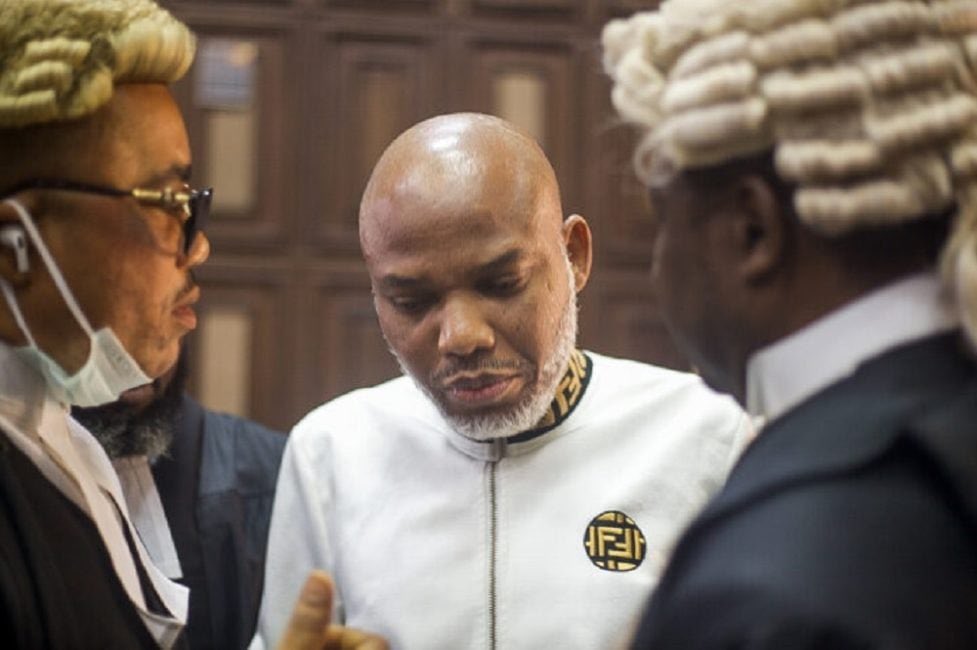
The Federal Government has urged the Federal High Court in Abuja to impose the death penalty on Nnamdi Kanu, leader of the proscribed Indigenous People of Biafra (IPOB), following his conviction on seven counts of terrorism on Thursday.
Justice James Omotosho delivered the judgment after ruling that the prosecution had proved its case beyond reasonable doubt, finding Kanu guilty on all seven charges.
Moments after the conviction, the Federal Government’s lead counsel, Adegboyega Awomolo, SAN, asked the court to apply the maximum punishment prescribed under the Terrorism Prevention (Amendment) Act, 2013.
Awomolo told the court that several of the offences for which Kanu was found guilty carry a mandatory death sentence.
“My Lord, consequent upon the conviction, nothing further remains but the lawful imposition of sentence. The punishment prescribed for the offences in Counts One, Two, Four, Five and Six, pursuant to Section 12H of the Terrorism Prevention Amendment Act 2013, is death,” Awomolo said.
“With all sense of humility, I say as a prosecutor that this court has no discretion in that regard. The only sentence Your Lordship can impose for Counts One, Two, Four, Five and Six is death, because the law empowers you to do so, and we expect that you will.”
Sentencing is expected to follow after the court considers all submissions from both sides.
WATCH THE PROSECUTOR SPEAK
Biafra
BREAKING: Nnamdi Kanu Convicted on Terrorism Charges by Federal High Court
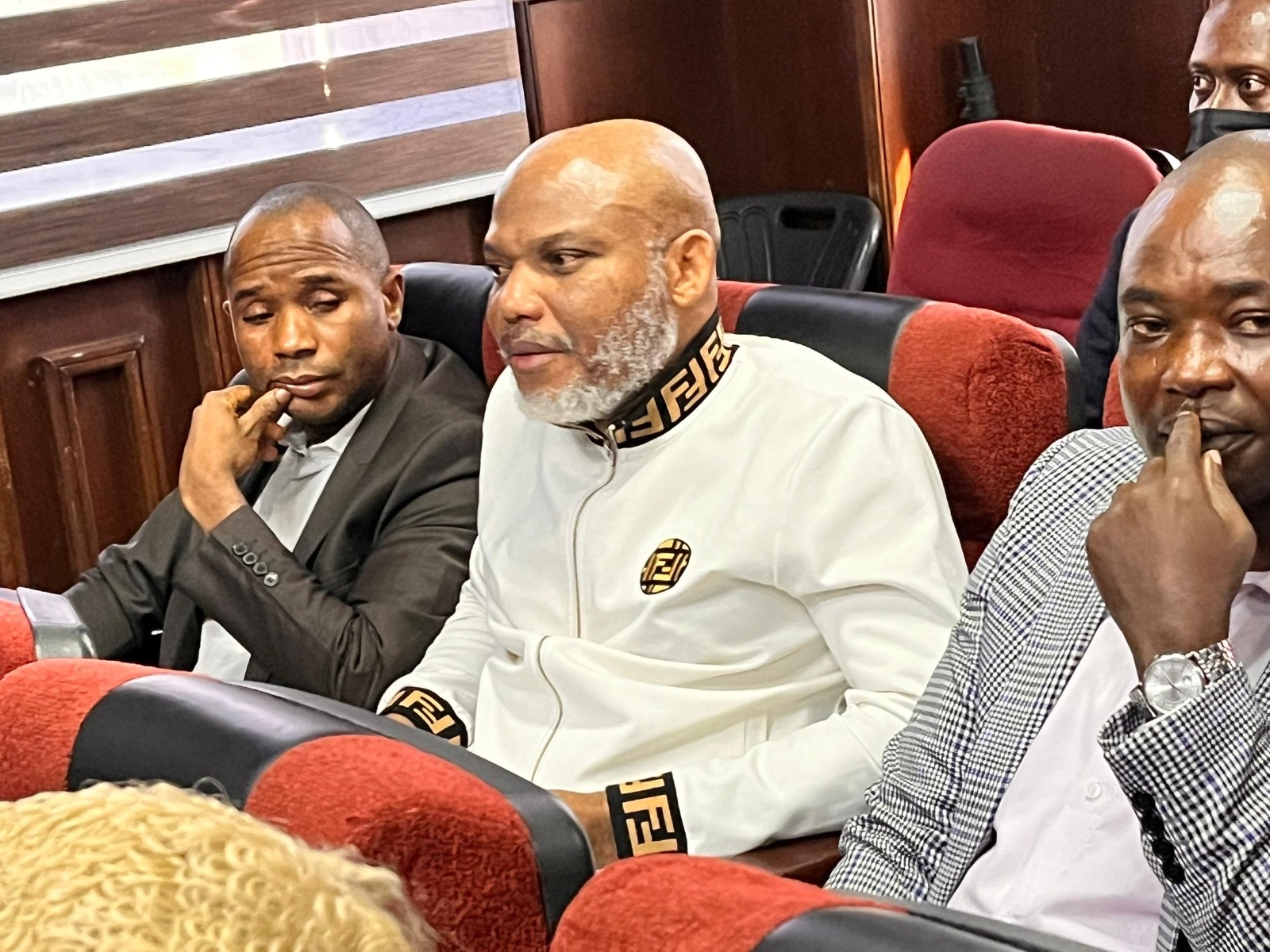
Mazi Nnamdi Kanu, leader of the Indigenous People of Biafra (IPOB), has been convicted on terrorism charges filed against him by the Nigerian government. The verdict was delivered on Tuesday by a Federal High Court in Abuja, presided over by Justice James Omotosho.
Kanu, who had previously resisted the court proceedings and refused to participate in his defence, was found guilty on all counts. According to Justice Omotosho, the court had no choice but to rely on the evidence presented by the prosecution after Kanu declined to engage in his defence.
“As an Apostle of Jesus Christ, I begged Kanu passionately to enter his defence, but he obstinately refused,” Justice Omotosho said.
Key Convictions
- Terrorism through broadcasts: Kanu was found guilty of inciting violence through broadcasts linked to IPOB activities.
- International terrorism: The court ruled that Kanu qualifies as an international terrorist.
- Sit-at-home orders in South-East Nigeria: He was convicted for enforcing sit-at-home directives that disrupted businesses and daily life across the South-East states.
- Murder of Ahmed Gulak: The court linked Kanu and members of the Eastern Security Network (ESN) to the murder of the former politician in Imo State.
- Leadership of a proscribed organisation: Kanu was also convicted for leading IPOB, which is officially listed as a terrorist organisation in Nigeria.
Justice Omotosho emphasized that Kanu’s refusal to enter a defence left the court with no alternative but to act on the incontrovertible evidence presented by the prosecution.
The court’s ruling marks a major development in Nigeria’s ongoing fight against terrorism and separatist agitation in the South-East.
More updates to follow…
News
Alleged Genocide: ‘Trump Is Serious, Not Making Empty Threats’ – Riley Moore Warns Nigerian Delegation
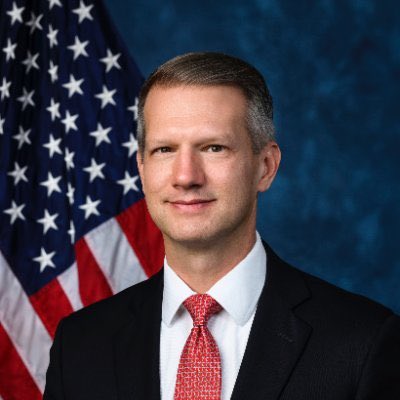
A high-powered Nigerian government delegation led by National Security Adviser Nuhu Ribadu met with U.S. lawmakers on Wednesday amid escalating allegations of Christian persecution and genocide in Nigeria.
The visit comes after former U.S. President Donald Trump redesignated Nigeria as a Country of Particular Concern and ordered an investigation into claims that Christians are being targeted. The move followed comments by Nigeria’s Vice-President, Kashim Shettima, who recently backed a two-state solution to the Israel–Gaza conflict, triggering intensified scrutiny from U.S. political and religious groups.
Trump tasked several lawmakers, including Congressman Riley Moore, to lead the inquiry. Despite repeated attempts by the Nigerian government to counter what it describes as a false narrative, U.S. officials have continued to act on growing claims that Christian communities face systemic persecution.
Tensions escalated further on Tuesday when American rapper Nicki Minaj was invited to the United Nations to testify against Nigeria in a session organised with the backing of the U.S. Mission to the UN. Nigerian officials were barred from attending the hearing, prompting a strong protest.
Nigeria’s Chargé d’Affaires to the UN, Syndoph Endoni, condemned the move, likening it to “shaving our head in our absence.”
Ribadu Meets U.S. Congressmen
On Wednesday, Ribadu and senior government officials met Congressman Moore in Washington, D.C., to present Nigeria’s position and address concerns surrounding insecurity and religious violence.
The delegation included Minister of State for Foreign Affairs Bianca Ojukwu, Inspector General of Police Kayode Egbetokun, Attorney-General Lateef Fagbemi, Chief of Defence Staff Gen. Olufemi Oluyede, Chief of Defence Intelligence Lt. Gen. E.A.P. Undiendeye, among other top security officials.
Moore confirmed the meeting on social media, describing the engagement as “open and constructive.” He said discussions focused on terrorism, security cooperation, and the protection of vulnerable communities across Nigeria.
“Today, I had a frank, honest, and productive discussion with senior members of the Nigerian government regarding the horrific violence and persecution Christians face and the ongoing threat terrorism poses across Nigeria,” Moore said.
He added that he had insisted the U.S. expects “tangible steps to ensure that Christians are not subject to violence, persecution, displacement, and death simply for believing in our Lord and Savior Jesus Christ.”
Moore said the United States is willing to deepen collaboration with Nigeria to combat Boko Haram, ISWAP, and violent extremist groups, especially in the Northeast and Middle Belt.
He issued a strong warning, emphasising that both Congress and Trump are aligned on holding Nigeria accountable:
“President Trump and Congress are united and serious in our resolve to end the violence against Christians and disrupt and destroy terrorist groups within Nigeria.”
As of Wednesday night, the Nigerian delegation had not released any public statement regarding the engagement.
Follow BONA NAIJA for more
Biafra
Judge Orders Nnamdi Kanu Out of Courtroom as Judgment Begins

Justice James Omotosho of the Federal High Court in Abuja on Thursday ordered security operatives to forcibly remove detained IPOB leader, Nnamdi Kanu, from the courtroom after the proceedings were repeatedly disrupted.
The dramatic scene unfolded moments after Kanu insisted that the court could not proceed with delivering judgment in the terrorism charges filed against him by the Federal Government.
Kanu, who raised his voice several times, demanded that the judge show him the section of the law that barred him from submitting a final written address. His outbursts halted the proceedings, prompting Justice Omotosho to stand down the matter while security agents escorted him out.
Before the disruption, Justice Omotosho had dismissed fresh applications filed by Kanu despite the case already being scheduled for judgment. According to the judge, the motions merely rehashed arguments previously raised and resolved in earlier rulings.
The court also rejected Kanu’s request to refer the matter to the Court of Appeal, citing Section 306 of the Administration of Criminal Justice Act (ACJA) 2015, which prohibits the stay of proceedings in criminal trials.
Additionally, Kanu’s bid for bail was turned down. Justice Omotosho, however, noted that some of the issues raised by the IPOB leader would be addressed during the final judgment.
The court has now commenced reading the judgment in the high-profile case.
-
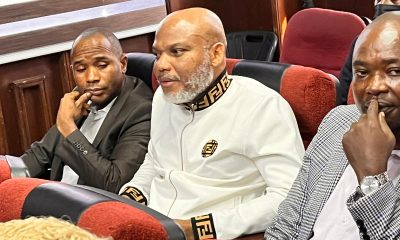
 Abuja3 weeks ago
Abuja3 weeks agoIPOB Leader Nnamdi Kanu Declines to Enter Defence, Insists “No Case” Against Him
-

 World News2 weeks ago
World News2 weeks agoUS Military Submits Contingency Plan for Action in Nigeria
-

 World News3 weeks ago
World News3 weeks agoTrump asks Pentagon to immediately start testing U.S. nuclear weapons
-

 Entertainment3 weeks ago
Entertainment3 weeks agoDavido Kicks Off ‘5ive Alive’ Tour with Sold-Out Uyo Stadium Show
-

 Music3 weeks ago
Music3 weeks agoMusic: Badshah and Davido Launch Cross-Cultural Hit “Wallah Wallah”
-

 Entertainment3 weeks ago
Entertainment3 weeks agoBurna Boy Makes Twitch Debut with PlaqueBoyMax in Freestyle Session
-

 Music News2 weeks ago
Music News2 weeks agoBurna Boy, Davido, Ayra Starr, Wizkid Lead Nigeria’s Charge in 2026 Grammy Nominations
-

 News2 weeks ago
News2 weeks agoGround Operation, Air Strikes Could Be Part of US Attack in Nigeria – Trump
-
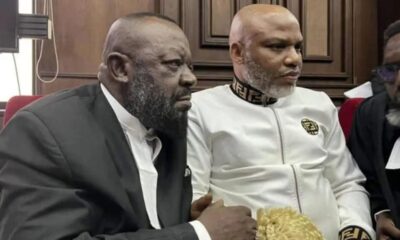
 Biafra4 weeks ago
Biafra4 weeks agoAnxiety as Nnamdi Kanu’s Lawyer, Aloy Ejimakor, Collapses in Kuje Prison
-
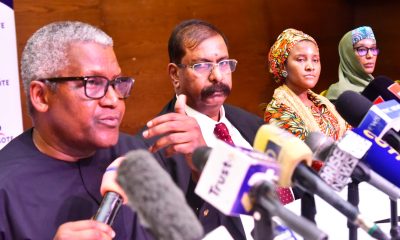
 Business3 weeks ago
Business3 weeks agoAliko Dangote Urges Nigerians to Sell Dollars as Naira Strengthens on Refinery Boost


































